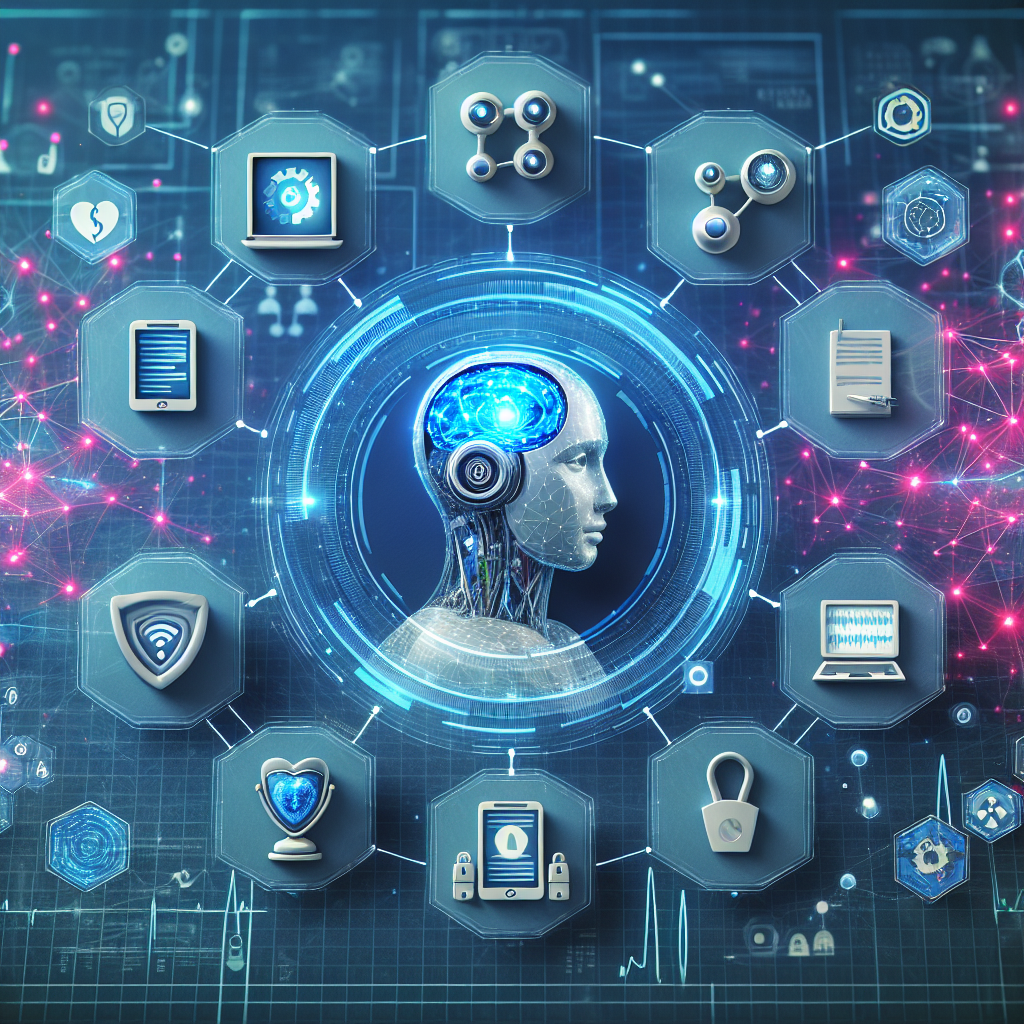AI Integration in Healthcare Data Governance
Introduction
Artificial Intelligence (AI) has become an integral part of healthcare data governance, as it offers numerous benefits in terms of data analysis, decision-making, and patient care. With the increasing amount of healthcare data being generated every day, it has become essential for healthcare organizations to implement AI solutions to manage and analyze this data effectively. In this article, we will explore the role of AI in healthcare data governance and its impact on patient care.
The Role of AI in Healthcare Data Governance
AI plays a crucial role in healthcare data governance by helping healthcare organizations to manage, analyze, and secure their data effectively. AI algorithms can process large volumes of data quickly and accurately, which is essential for making informed decisions in healthcare. These algorithms can also identify patterns and trends in data that human analysts may overlook, leading to more accurate diagnoses and treatment plans.
One of the key benefits of AI in healthcare data governance is its ability to improve data security. AI algorithms can detect and prevent data breaches by monitoring network activity, identifying suspicious behavior, and alerting IT teams to potential threats. This helps healthcare organizations to protect patient data and comply with data privacy regulations such as HIPAA.
AI can also help healthcare organizations to improve the quality of patient care by providing personalized treatment plans based on individual patient data. By analyzing patient data such as medical history, genetic information, and lifestyle factors, AI algorithms can recommend the most effective treatment options for each patient. This personalized approach to healthcare can lead to better outcomes and reduced healthcare costs.
In addition, AI can help healthcare organizations to streamline their operations by automating repetitive tasks such as data entry, scheduling appointments, and billing. This frees up healthcare professionals to focus on patient care and reduces the risk of human error in administrative tasks. AI-powered chatbots and virtual assistants can also improve patient engagement by providing round-the-clock support and answering common questions.
Overall, AI integration in healthcare data governance can lead to improved patient care, increased data security, and more efficient operations for healthcare organizations. By harnessing the power of AI, healthcare organizations can make better use of their data and drive innovation in the healthcare industry.
FAQs
Q: How does AI improve data security in healthcare data governance?
A: AI algorithms can detect and prevent data breaches by monitoring network activity, identifying suspicious behavior, and alerting IT teams to potential threats. This helps healthcare organizations to protect patient data and comply with data privacy regulations such as HIPAA.
Q: How can AI algorithms help healthcare organizations to make informed decisions?
A: AI algorithms can process large volumes of data quickly and accurately, helping healthcare organizations to identify patterns and trends in data that human analysts may overlook. This leads to more accurate diagnoses and treatment plans.
Q: How does AI personalize treatment plans for patients?
A: By analyzing patient data such as medical history, genetic information, and lifestyle factors, AI algorithms can recommend the most effective treatment options for each patient. This personalized approach to healthcare can lead to better outcomes and reduced healthcare costs.
Q: What are some examples of AI applications in healthcare data governance?
A: Some examples of AI applications in healthcare data governance include predictive analytics for patient outcomes, natural language processing for analyzing unstructured data, and image recognition for diagnosing medical conditions from medical images.
Q: How can healthcare organizations leverage AI to streamline their operations?
A: Healthcare organizations can leverage AI to automate repetitive tasks such as data entry, scheduling appointments, and billing. AI-powered chatbots and virtual assistants can also improve patient engagement by providing round-the-clock support and answering common questions.

